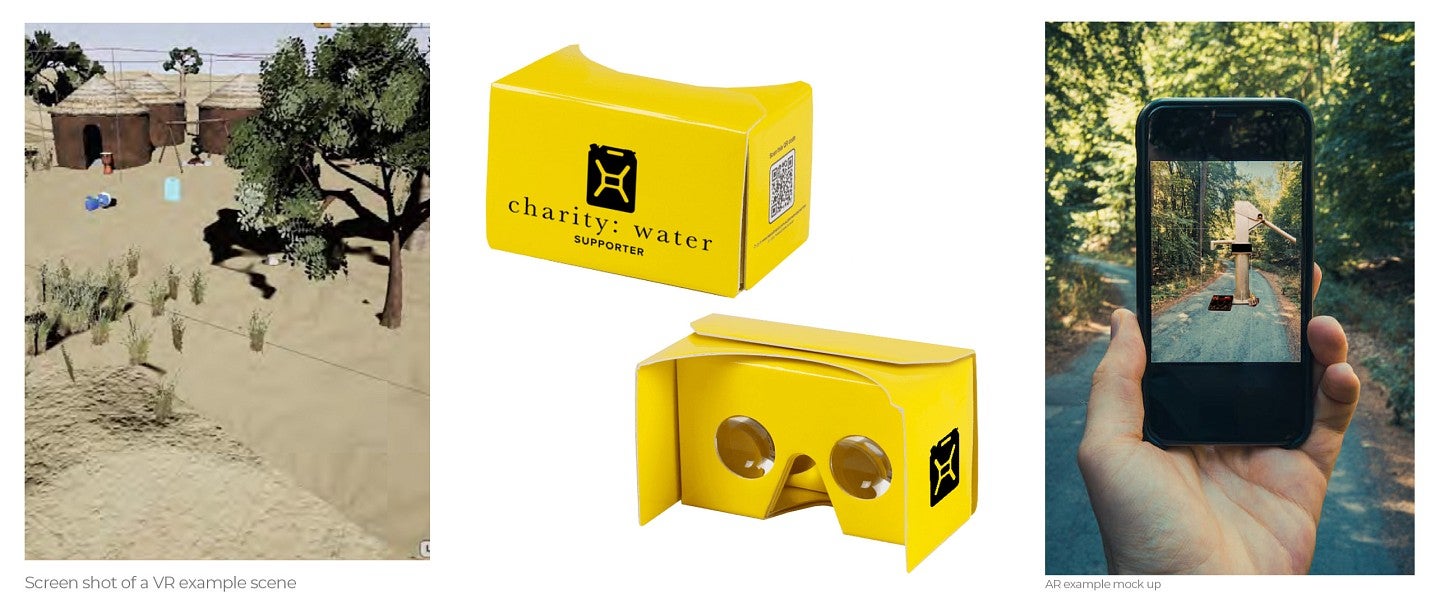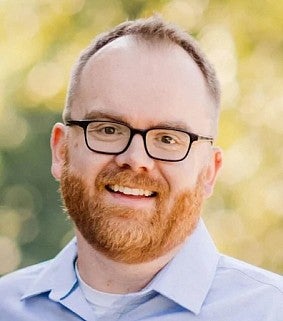

When Jake Savelich ’23 set out to change the world, he zeroed in on two of its most powerful resources: water and empathy.
When he found the nonprofit charity: water — whose goal is to end the global water crisis — he came to understand the magnitude of the elemental problem humankind faces. In working toward his master’s degree in strategic communication, he realized the innate power of immersive media to encourage empathy and inspire action.
“I pursued this degree program, one, for the creative side and two, for the ability to really help people understand things from a different perspective,” Savelich said. “Immersive media is so powerful because you can transport people to a place they've never actually been and show them exactly what you're trying to communicate.”
Savelich’s capstone project researches the efficacy of virtual reality presentations that immerse the user in locations — such as an African village — where they can “live” the story as lifesaving water resources are delivered and installed. By seeing the smiles on the villagers’ faces and understanding the environment, donors better understand where their money will go.
Savelich’s case study and marketing plan breaks down the importance of empathy and proposes an array of augmented reality (AR), virtual reality (VR) and other immersive media tactics. Accessible cardboard headsets that work with smartphones to create a VR experience, AR interfaces that help donors visualize projects around the globe, and interactive games and webpages are just a few of the methods Savelich explores.
And it’s all thanks to expertise gained en route to his master’s degree.
“There's a huge audience in immersive platforms already, and it's projected to grow, which also means the amount of money being spent on those platforms will increase,” said Savelich. “So even if you just get a foundational understanding — what does immersive media really mean and how can you use it — it really will set you apart as industry keeps moving more and more towards these platforms.”
